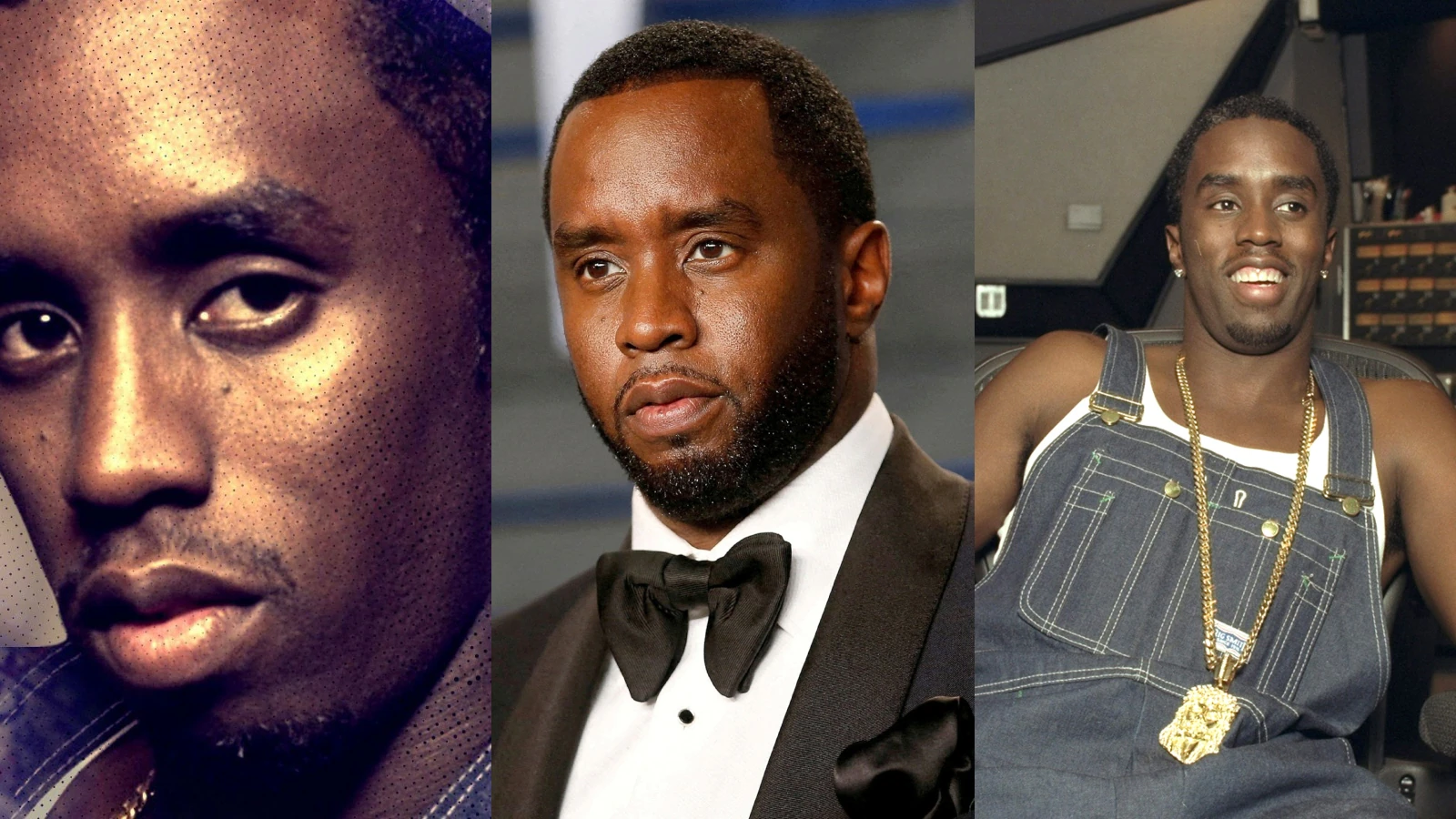Sean ‘Diddy’ Combs: A Timeline Of His Career, Rise And Legal Troubles As He Awaits Sentencing
By News18,Yatamanyu Narain
Copyright news18

Few figures in modern music embody both the soaring heights and the crushing pitfalls of celebrity quite like Sean “Diddy” Combs. For more than three decades, Combs has been more than just a hip-hop mogul: he has been a cultural architect. Through Bad Boy Records, he helped define the sound of 1990s rap; with his Sean John fashion line, he took hip-hop aesthetics to Fifth Avenue; with his entrepreneurial savvy, he became a billionaire figure who epitomized the “from Harlem to Wall Street” dream.
And yet, alongside this staggering success, Diddy has lived a parallel narrative—one punctuated by tragedy, violence, lawsuits, and controversies that have only grown more serious with time. Now, at 55, Combs stands at the most consequential moment of his life: convicted of transporting individuals across state lines for prostitution, acquitted of racketeering and sex trafficking, and facing sentencing on October 3, 2025.
His story is at once a chronicle of hip-hop’s evolution and a sobering reminder of the way power, fame, and abuse can collide. Here’s a detailed look at his trajectory—how Sean Combs became Diddy, and how Diddy ended up in court.
The Early Years: Harlem Hustle and Uptown Beginnings (1990–1993)
Born in Harlem in 1969, Sean Combs grew up in Mount Vernon, New York, raised by his mother after his father was murdered when Combs was just two years old. His early life was defined by ambition—by his own accounts, he was hustling and organizing even as a teenager.
While attending Howard University in Washington, D.C., Combs secured an internship at Uptown Records, one of New York’s hottest R&B labels. There, under Andre Harrell, he worked behind the scenes on projects that helped shape the future of urban music, including Mary J. Blige’s groundbreaking debut album “What’s the 411?” (1992), which fused hip-hop swagger with R&B soul.
But Combs’ meteoric rise at Uptown was cut short when he was abruptly fired in 1993. Rather than retreat, he used the moment to launch his own empire.
Bad Boy Records and the Birth of a Mogul (1993–1999)
Combs founded Bad Boy Entertainment in 1993, quickly securing a distribution deal with Arista Records. His first major signing was Christopher Wallace—better known as The Notorious B.I.G. Their partnership would define the decade.
Bad Boy Records pumped out hits that dominated both charts and streets: Biggie’s Ready to Die (1994), Craig Mack’s Flava in Ya Ear, Faith Evans’ smooth ballads, and later, Ma$e’s radio-ready flows. Combs wasn’t just behind the board; he was stepping into the spotlight himself, first as “Puff Daddy,” delivering flashy ad-libs and eventually full solo albums.
But success came intertwined with controversy. In 1991, a celebrity basketball game Combs promoted left nine people dead in a stampede at City College, a tragic incident blamed partly on poor planning. In 1994, Tupac Shakur accused Combs and Biggie of having foreknowledge of his New York shooting, fueling the deadly East Coast–West Coast feud.
Then tragedy struck again. Tupac was murdered in 1996. Biggie was killed in Los Angeles in 1997. Both deaths remain officially unsolved.
Combs turned grief into commercial power. His single I’ll Be Missing You—a tribute to Biggie—topped charts worldwide. His debut album No Way Out won two Grammys in 1998. At the same time, he founded Sean John, a fashion line that brought hip-hop into department stores and would later earn him a Council of Fashion Designers of America award.
Yet brushes with the law mounted: an arrest for threatening a photographer in 1996, an assault case involving Interscope executive Steve Stoute in 1999, and his most infamous entanglement—a nightclub shooting that December, which he fled alongside then-girlfriend Jennifer Lopez.
The 2000s: Acquittal, Reinvention, and Expansion
In 2001, Combs stood trial for the nightclub shooting. Accused of gun possession, bribery, and reckless endangerment, he faced serious prison time. But in March, after weeks of testimony, a jury acquitted him of all charges. His protégé Jamal “Shyne” Barrow wasn’t as lucky—convicted and sentenced to nearly nine years in prison.
Rebranding himself as P. Diddy, Combs shifted focus from the courtroom to the stage and screen. He launched the reality TV series Making the Band, shepherding pop groups and exposing the behind-the-scenes drama of the music business. He performed at the 2004 Super Bowl halftime show, made his Broadway debut in “A Raisin in the Sun,” and continued producing chart-topping hits.
By 2005, he dropped the “P.” and became just Diddy—a brand in his own right.
But controversies followed him like a shadow. Lawsuits alleged assault, altercations at Hollywood parties made headlines, and his reputation as a hard-partying, hot-tempered mogul stuck even as he received honors like a star on the Hollywood Walk of Fame (2008).
2010s–Early 2020s: Empire and Tragedy
The next decade cemented Combs as one of hip-hop’s wealthiest men. He partnered with Diageo on Cîroc vodka, launched media ventures, and became a fixture on Forbes’ lists of highest-paid celebrities. In 2017, he topped the world with an estimated $130 million earnings in one year.
He also used his influence philanthropically, founding a Harlem charter school in 2016 and donating millions to Howard University.
But personal life brought heartbreak. In 2018, his longtime partner Kim Porter, mother of three of his children, died suddenly from pneumonia at 47. Combs spoke of her as his soulmate, and the loss shook him profoundly.
By 2022, he was being honored with lifetime achievement awards, basking in both respect and nostalgia. To many, he seemed untouchable.
2023–2025: Allegations and Arrests
Then came the fall.
In September 2023, Combs released The Love Album — Off the Grid, his first solo project in nearly two decades. But weeks later, his ex-girlfriend Cassie filed a lawsuit alleging years of abuse, rape, and violence during their relationship. The case settled within 24 hours, but the floodgates opened.
By late 2023, dozens of lawsuits from women and men accused Combs of sexual assault, rape, and coercion, including shocking allegations from former collaborators and contestants on Making the Band. He denied all claims.
In March 2024, federal agents raided his homes in Los Angeles and Miami. In May, CNN released video footage from 2016 showing Combs violently assaulting Cassie in a hotel hallway. The images caused public outrage. Combs later issued an apology, but pressure mounted.
In September 2024, he was arrested in New York and indicted on sex trafficking and racketeering charges. Prosecutors claimed he used his empire to orchestrate “drug-fueled marathons” of abuse, assisted by associates.
The trial began in May 2025. Over weeks of testimony, accusers painted a chilling portrait of coercion and violence. On July 2, the jury returned a split verdict: Combs was convicted of transporting individuals across state lines for prostitution, but acquitted of sex trafficking and racketeering.
Awaiting Sentencing: October 2025
Now, as Combs awaits sentencing, the man who once epitomized hip-hop’s entrepreneurial dream faces the prospect of years behind bars.
His legacy is deeply fractured. To some, he remains the visionary who gave the world Biggie Smalls, Mary J. Blige, and one of the most successful hip-hop labels in history. To others, he is the embodiment of unchecked power in the music industry—an empire built on exploitation, now collapsing under its own weight.
As the judge prepares to deliver his sentence, Sean “Diddy” Combs stands at the starkest crossroads of his life: from Harlem hustler to music mogul to convicted felon. The verdict will not just determine his future—it will define how history remembers him.



